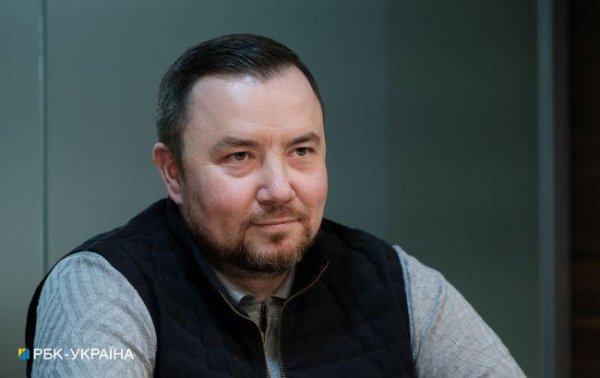
Denis Maslov (photo: Vitaly Nosach/RBC-Ukraine) Author: Yulia Akimova
What is happening with the implementation of judicial reform in Ukraine, how the Verkhovna Rada wants to fight judicial corruption and why the abolition of Lozovoy’s amendments could be harmful – Denis Maslov, head of the Council’s Committee on Legal Policy, spoke about this in an interview with RBC-Ukraine.
Judicial reform in Ukraine is one of the key demands of the European Union and the IMF. For almost 10 years, the issue of reforming the judiciary has been raised hundreds of times, but no significant results have been achieved. Today, European allies have finally announced that reform is progressing at a satisfactory pace.
Over the course of several years, the High Council of Justice and the High Qualifications Commission of Judges were reactivated in Ukraine, and the scandalous District Administrative Court of Kyiv was closed. However, there are still many issues, the main one being the selection of judges and corruption in this area.
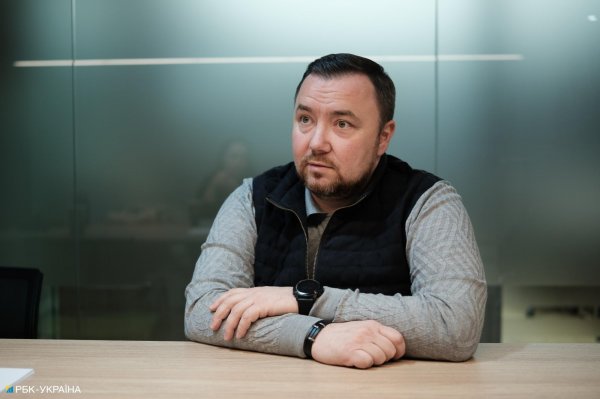
– Judicial reform. Another year has passed, you and your colleagues report that the reform is progressing well. However, the latest KIIS survey showed that public trust in judges has fallen and now stands at 12%. Last year it was more than 20%. Why do you think you see positive changes but society does not?
– I don’t really like the phrase “judicial reform”. It has been greatly discredited since the reform has been going on for about 30 years. I would call this the word “changes”. If we talk about evaluation, first of all we have the evaluation of our international partners. Here it is worth remembering the words of Charles Michel, Annalena Berbock, many representatives of European institutions, and finally, the report of the European Commission on recommendations to open the process of negotiations with Ukraine. Most often our allies use the word “impressed” (impressed – ed.).
In fact, we have accomplished fundamental things. Starting from the reboot on completely new terms of the two highest bodies of judicial administration – the High Council of Justice and the High Qualifications Commission of Judges and the improvement of the procedure for selecting judges of the Constitutional Court of Ukraine. We have launched these processes.
We have changed the procedures for disciplinary liability of judges. We launched the selection process for the positions of disciplinary inspectors and the formation of this institute under the GRP. Therefore, a lot has been done this year.
Regarding the survey. The level of trust is formed through public messages, among other things. And this year, certain events took place in our judicial system, for example, the detention of the Chairman of the Supreme Court. Detention of a judge who, most likely in a state of intoxication, knocked down a man to death. Various reports of suspected corruption of other judges. Of course, society is especially sensitive to this during war, and this damages confidence in the judicial system. But what we are doing now are fundamental things, and they will have an effect. And they will show that we have no more untouched. But we must not forget that we have many more worthy judges in the system than the criminal cases that we record.
– Agree. But you yourself once said that judges are the only people in Ukraine who make decisions in the name of Ukraine. They have more responsibility, and accordingly, more is asked of them.
– You and I often talk in public about judges, but there are more than 20 thousand judicial workers in the system. And their salaries, to choose the right word, are inadequate. They demotivate. I don’t think that many of those criticizing are ready to work for this salary with such a load.
– You mentioned high-profile cases, one of which is the case of Vsevolod Knyazev. As far as I remember, in addition to Knyazev, three more judges were searched, and money was even found on one of them, the origin of which is unclear. Obviously, Knyazev did not develop and implement his schemes alone. What does this story show us? That the judicial branch of government is rotten to the core?
– This is more a question for law enforcement and anti-corruption agencies; we cannot replace their work. The Verkhovna Rada immediately responded to this case, condemned this shameful situation and registered a number of bills that would tighten liability for corruption offenses in the field of justice. I know Knyazev from personal communication and saw the reaction of his colleagues. They were shocked by this situation.
– What is Vsevolod Knyazev like?
“I definitely didn’t see his hooves or horns.” From personal communication I remember that he is a rather ambitious young man. We communicated with him exclusively on professional topics, and even argued on some issues. When this happened, people even called me on the phone from the USA. Just the day before he was in America, talking about the judicial system in Ukraine. This is a very bad image story for us, but on the other hand, this story showed that we have no indulgences, no untouched people.
– These are two parallel stories. Yes, we have anti-corruption agencies working and thanks to their work, Knyazev is now sitting in the dock. Indeed, we could not have imagined this just a few years ago. But, firstly, the trial has not yet ended, and secondly, the question remains – even if the Chairman of the Supreme Court oversaw illegal schemes, how corrupt is our judicial branch of government in principle.
“We are now trying to work so that such cases do not happen again. Therefore, they resumed the procedure for disciplinary proceedings against judges, made an open vote for members of the High Council of Justice, so that everyone understood that how they would vote would be open to society.
The High Council of Justice will consider disciplinary complaints against controversial judges in each region. And I think when decisions are made, including dismissals from positions, then everyone will understand that it will no longer be as it was. Moreover, we have a qualification assessment procedure; the High Qualification Commission of Judges of Ukraine has already resumed its work. There is a Public Virtue Council, which is also working now. An extremely great responsibility today lies with the High Council of Justice, including in matters of ensuring the virtue of the judiciary.
We want to be clear to our society and are doing what should have been done a long time ago. And we want to be clear to our international partners, because they help us.
– About the case of Judge Tandoor. You were also a judge, you are well acquainted with your former colleagues, you have a wide circle of friends. How many of the judges are like Tandir?
– There are few, there are few such people. And let's be honest, in every group of professions there are different people, including people like Tandoor. The profession of a judge is a complex, extremely responsible profession, where ethical, moral, and even legislative standards are much higher than for other categories of professions. But people who went into this profession took on this cross. And it is very important that society respects this profession. Yes, we have high-profile cases, but at the same time we have thousands of judges who work, devoting their whole lives to this.
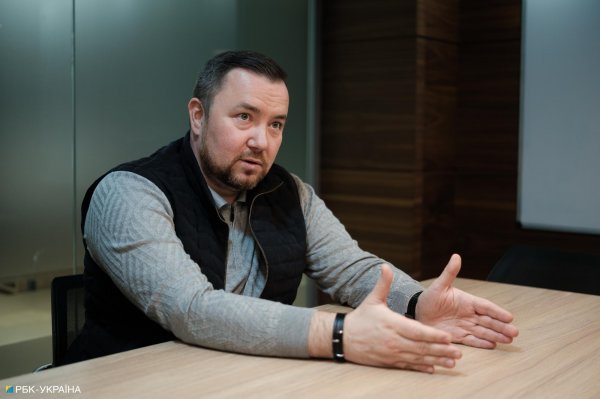
– A competition for disciplinary inspectors was recently announced. What is it and what does it change?
– See how the High Council of Justice now considers disciplinary complaints against judges? In fact, it considers them with its composition, then decides on the admissibility of such complaints and makes decisions. In 2021, we voted for changes to the law on disciplinary inspectors. Now that we have an established VSP, we have changed the procedure for forming the service of disciplinary inspectors. Now this service will be formed by a commission consisting of three members of the GSP and three representatives of our international partners. We did the same with the UPU, the Higher Qualification Committee, and the Constitutional Court. In this way, we ensure that there is no political influence on these processes.
We have two conclusions from the Venice Commission, they assessed our decision and it was received favorably. The same applies to the Advisory Group of Experts at the Constitutional Court. We defended our vision of six members, of which three, not four, are international affairs.
We must do this because we are on our way to the European Union. Each country that at one time joined the EU defended its positions, we saw this even in the example of Poland. We will still have to spend many hours in negotiations, sometimes quite tough. But we must defend our position, the position of our people, the interests of our state, our people, our economy, business and so on.
As for the service of disciplinary inspectors. They will be recruited through a competitive procedure, with three members of the High Council of Justice and three representatives of international partners, but with preferential voting by the international partners in case of equality of votes. This indicates that the Ukrainian authorities will not be able to influence this process. And, by the way, you will not find an example in world practice when, during the formation of the same Constitutional Court, there was a similar selection structure.
Disciplinary inspectors are people who should not be questioned regarding their virtue and professionalism. They will review complaints, prepare materials for each complaint and propose a solution. Today, there are about 14 thousand scrags in the PSA, all of which need to be cleared out.
– And how many people will look at them?
– Now the service will include 26 inspectors. They will be the first to consider complaints.
– 26 people will consider 14 thousand complaints?
– Now the High Council of Justice is doing this on their own, and there will also be disciplinary inspectors. Why is this important – the opening of these complaints will not depend on the members of the GRP. If accusations are now possible that some of the members of the GRP are appointed by bodies of judicial self-government, then the formed service of disciplinary inspectors will have a certain autonomy and fairly decent salaries at the level of judges of the first instance. And they will already decide to open disciplinary proceedings for each complaint against the judge. These complaints will be considered by a non-partisan body without the influence of other officials. Our partners are ready to help us with this, by the way.
– Did we take an example from someone or is this our own invention?
– Of course, there are examples of services that are similar in functionality in different countries. There, this can be done by other inspectors similar to the High Council of Justice, and so on. But in terms of the formation of autonomy on some issues, this is a unique Ukrainian experience. Ukrainian society should feel these changes, and then these surveys that you mentioned will show completely different figures.
Honestly speaking, if we go back to the polls, negative things are the most talked about in the media space. There are rules of the media space – death, sex and scandal. Things that don't come up include the fact that we have judges who protect the country. Less interesting for society is that, according to statistics, the workload on a judge is overtime. If you count the number of cases per judge somewhere in a district court, it turns out that to consider a certain number of cases per year, he will need more than 400 working days a year, and we only have 252. Or we can remember the times of coronavirus, when workers the ships were given two masks and nothing else, despite the fact that the convoy could make a person sick with something. But court workers work in such conditions.
– I agree, but you, as a person who has been in this area, see the processes inside. Society generally sees that there are high-profile scandals, but in the end very few people are sentenced.
– Yes, it’s easy to lose trust, but it’s very difficult to restore it.
– In your opinion, how do anti-corruption authorities work now? Was it the right decision to separate SAPO from the subordination of the Office of the Prosecutor General and make it a separate body?
– This was agreed with our international partners. And again, we must be clear and honest with our people, with the Ukrainians. That's why it was an important decision. I know that there was a very difficult internal discussion on this issue, but finally the Verkhovna Rada supported this bill. And I supported it too. I hope that the implementation will be successful, but we will judge by the results.
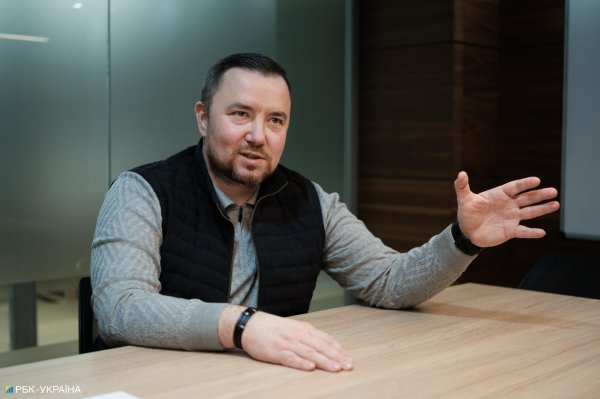
We have given our anti-corruption agencies everything we can to make them work. Now they should have a result.
– In your opinion, corruption and high treason are the same thing?
– I think that corruption directly affecting the sphere of our defense or the foundations of our statehood – yes, this is high treason. Where the most important government officials work, including those from the judicial branch of government.
– I remember August, when President Zelensky proposed equating top-level corruption with high treason. So, if we compare these two concepts, the sentences for top corruption will be three years longer than now. But this also means that top-level corruption, like high treason, will be dealt with by the SBU, and not by anti-corruption agencies.
– This is not a question for my relevant committee. But I will tell you my position, especially since I have registered the bills that are now under consideration in the law enforcement committee. They provide for changes to the Criminal Code regarding corruption offenses in the justice sector. And this applies not only to judges. This applies to everyone who offers bribes, who takes bribes, who thinks of solving the case with the help of lawyers, prosecutors, and so on.
– What are you offering?
“We proposed increasing criminal liability, including to a maximum term of up to fifteen years in prison, especially during martial law, during war. Therefore, I perceive and share this position that during war, corruption offenses directly related to defense issues or to critical government issues should be punished as severely as possible.
– As for the sanctions for punishment, it is clear, although if we say that a corruption violation is punishable by a maximum term of imprisonment of up to 12 years, and treason – up to 15, there is a question of the expediency of these three years. But the question is that our international partners have confidence in the anti-corruption authorities. And the SBU is a body that is still subordinate to the authorities.
– To be honest, I have not heard that our international partners have mistrust of the Security Service of Ukraine. For everything else, let's leave this issue to the law enforcement committee. For me, the main thing is the content of the bill, its social significance. And in it we propose to equate top-level corruption in the areas of defense and the foundations of statehood to high treason, because de facto it is undermining the state. Regarding the jurisdiction, we do not propose to change the jurisdiction in the bill.
– Recently, several points of Lozovoy’s amendments were canceled in the Rada. In particular, the deadlines for conducting cases were cancelled. We understand that this will have a positive impact on SAP production, but won’t this be a reason for other law enforcement agencies to open a case against a hypothetical businessman and keep him on the hook for an indefinite period of time?
– I voted for these changes and I will tell you my personal position. We must focus on the fact that we are doing this during the war, our partners are helping us, without their help it would be much more difficult for us.
As for the corrections, I worked as a lawyer and I can say that, including in criminal cases, especially at the stage of pre-trial investigation, especially in terms of protecting businesses, business entities, and so on, there has always been pressure on business from law enforcement officers.
And what could be the consequences when there really is a factual case, there is no report of suspicion and such a case can last a year, two years, and all this time certain investigative actions can be carried out? I can give you an example from practice, when the tax police opened a criminal case, criminal proceedings were registered for tax evasion or under another article, and as a result, “chain letters” were regularly sent to counterparties, saying “there is a registered criminal proceeding, document evasion is possible… “. And a living business simply had its reputation destroyed, with all the negative consequences – searches, arrests, and so on. It's all possible. There is a risk that this is possible.
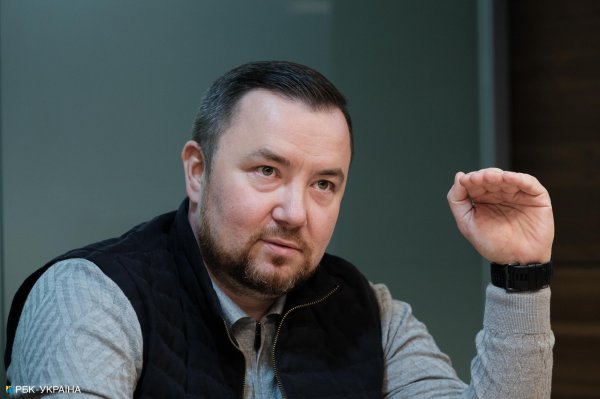
I am very careful about bills. But in order to save some anti-corruption cases, we cannot jeopardize many other industries throughout Ukraine, business entities and the like. There is a risk. The issue of possible abuse by law enforcement agencies can only be resolved by monitoring their activities. I emphasize that this is my personal point of view. If we see that certain changes in legislation are used as a tool of pressure or influence on business, I think we will return to this issue. If the authorities open factual cases, put pressure on business and this interferes with our investment climate, I think we will discuss this with our international partners and explain why we are returning to Lozovoy’s amendments.
– Jury trials and military courts – is there any prospect that this will work in Ukraine?
– Regarding the jury trial. We have bills to consider. I fully support a jury trial. Moreover, I support trial by jury in the United States model. I really want us citizens, as provided in our Constitution, to take part in the administration of justice through a jury trial. But is this possible now?
I remember when I was still a judge, I considered the case together with people’s assessors. Let's just say that there were questions about their level of understanding of what they were doing. I would like it to be the way it works in the United States, where certain types of cases are decided by a jury. But I understand the difficulties of implementation; problems may arise with this. Difficulties with basic seating of jurors in the courtroom. If you go to the district courts, you will see that there is nowhere to put them.
Issues of ensuring the possibility for them to reach a verdict in isolation from outside influence. There must be quite serious funds for this. And let me remind you that when the salary of a court secretary is a penny, spending money on a complete re-equipment of the halls is a problem. Writing a law about this is only half the battle. Here's how to implement this law and where to get the money for it?
Regarding the military court. We talked about this with colleagues, there are different models. The first model is the creation of a separate vertical. And this is again a colossal expense. In addition, this is a set of judges. We changed the selection procedure and adopted the corresponding bill, but it is still one long procedure. Considering the entire array of tasks that the High Qualification Commission of Judges now has, this will take 12-14 months.
And the most important question is, does the state have the resource to spend colossal amounts of money on building a separate judicial vertical, if today the state cannot meet the needs of existing courts? Therefore, in my opinion, even from an organizational point of view, this is inappropriate now. I am in favor of having judges in individual courts who specialize in considering the relevant category of cases. They must be trained accordingly. Many judges have already undergone training; the same National School of Judges has been substantively training them together with international partners. Now we already have experience in dealing with war crimes and war crimes.
